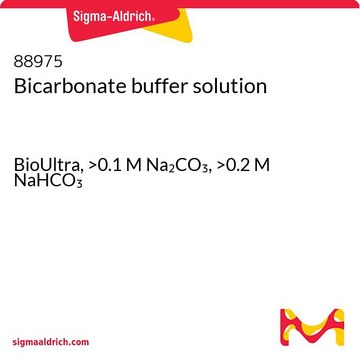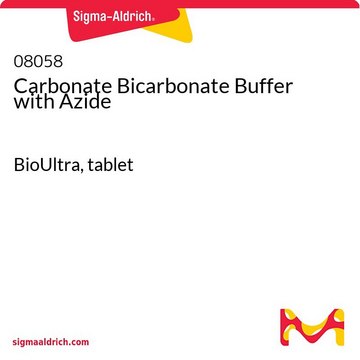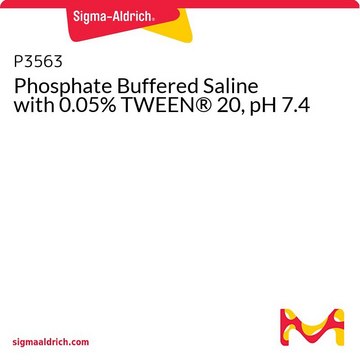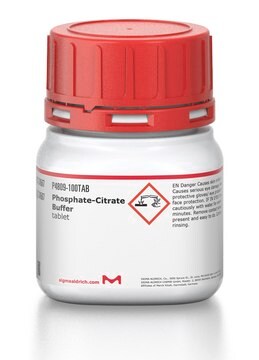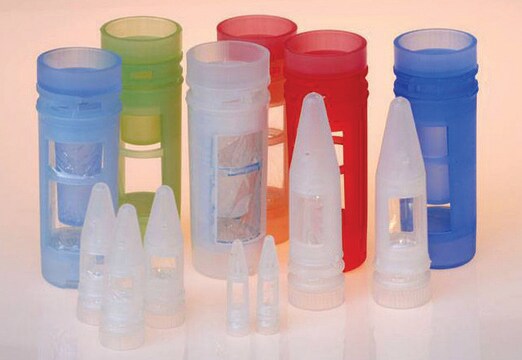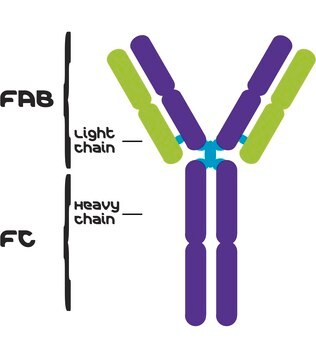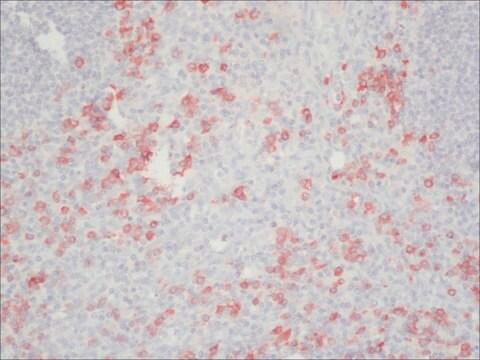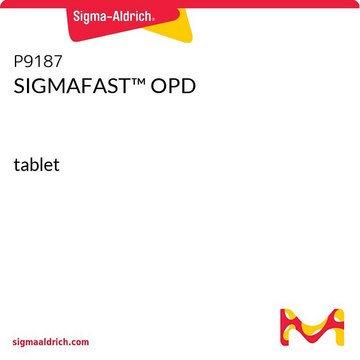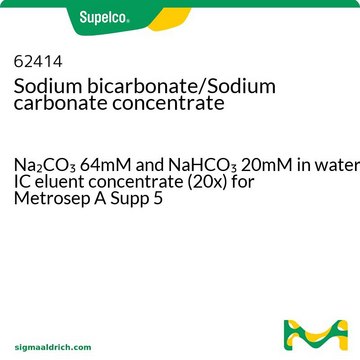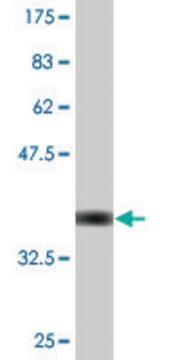C3041
Carbonate-Bicarbonate Buffer
capsule
Synonym(s):
Carbonate Buffer Solution
Sign Into View Organizational & Contract Pricing
All Photos(2)
About This Item
UNSPSC Code:
12161700
NACRES:
NA.25
Recommended Products
form
capsule
Quality Level
pH
9.3-9.9
solubility
water, high purity: 1 capsule/100 mL
application(s)
diagnostic assay manufacturing
General description
Bicarbonate buffer mostly have a pH close to 7.4. It is the major small intestine buffer.
Application
Carbonate-Bicarbonate Buffer has been used for suspending the lyophilized human plasma sample for microtiter plate biofilm assay and flow cell biofilm assay. It has also been used as a coating buffer for microtiter plates prior to enzyme-linked immunosorbent assay(ELISA).
Prepared buffer is suitable for use in protein coating procedures on multiwell plates or plastic tubes.
Reconstitution
Empty the contents of one capsule in 100 mL of deionized water and dissolve. The contents of one capsule yields 100 ml of 0.05 M carbonate-bicarbonate buffer, pH 9.6 at 25 °C.
recommended
Product No.
Description
Pricing
Signal Word
Warning
Hazard Statements
Precautionary Statements
Hazard Classifications
Eye Irrit. 2
Storage Class Code
13 - Non Combustible Solids
WGK
WGK 1
Flash Point(F)
Not applicable
Flash Point(C)
Not applicable
Choose from one of the most recent versions:
Already Own This Product?
Find documentation for the products that you have recently purchased in the Document Library.
Customers Also Viewed
Mike Burrows et al.
BMC complementary and alternative medicine, 9, 49-49 (2009-12-02)
For almost 2000 years it has been recognized that aqueous extracts from pine cones possess medicinal properties beneficial for the treatment of a broad variety of diseases and conditions. In this report, the ability of an orally administered poly phenylpropanoid-polysaccharide
L von Gersdorff Jørgensen et al.
Journal of fish diseases, 40(12), 1815-1821 (2017-05-27)
The protective effect in rainbow trout (Oncorhynchus mykiss) of an experimental subunit vaccine targeting antigens in the parasite Ichthyophthirius multifiliis has been evaluated and compared to effects elicited by a classical parasite homogenate vaccine. Three recombinant parasite proteins (two produced
Investigation of biofilm formation in clinical isolates of Staphylococcus aureus
Cassat JE, et al.
Methods in Molecular Biology, 391(1), 127-144 (2007)
Yuki Noguchi et al.
Scientific reports, 10(1), 16268-16268 (2020-10-03)
In vivo pharmacokinetics (PK) studies using mice and monkeys are the main approaches for evaluating and predicting the PK of antibodies, and there is a strong demand for methods that do not require animal experiments. In this work, we focused
Ashfaq Ghumra et al.
PloS one, 6(1), e16414-e16414 (2011-02-10)
Rosetting is a Plasmodium falciparum virulence factor implicated in the pathogenesis of life-threatening malaria. Rosetting occurs when parasite-derived P. falciparum Erythrocyte Membrane Protein One (PfEMP1) on the surface of infected erythrocytes binds to human receptors on uninfected erythrocytes. PfEMP1 is
Our team of scientists has experience in all areas of research including Life Science, Material Science, Chemical Synthesis, Chromatography, Analytical and many others.
Contact Technical Service